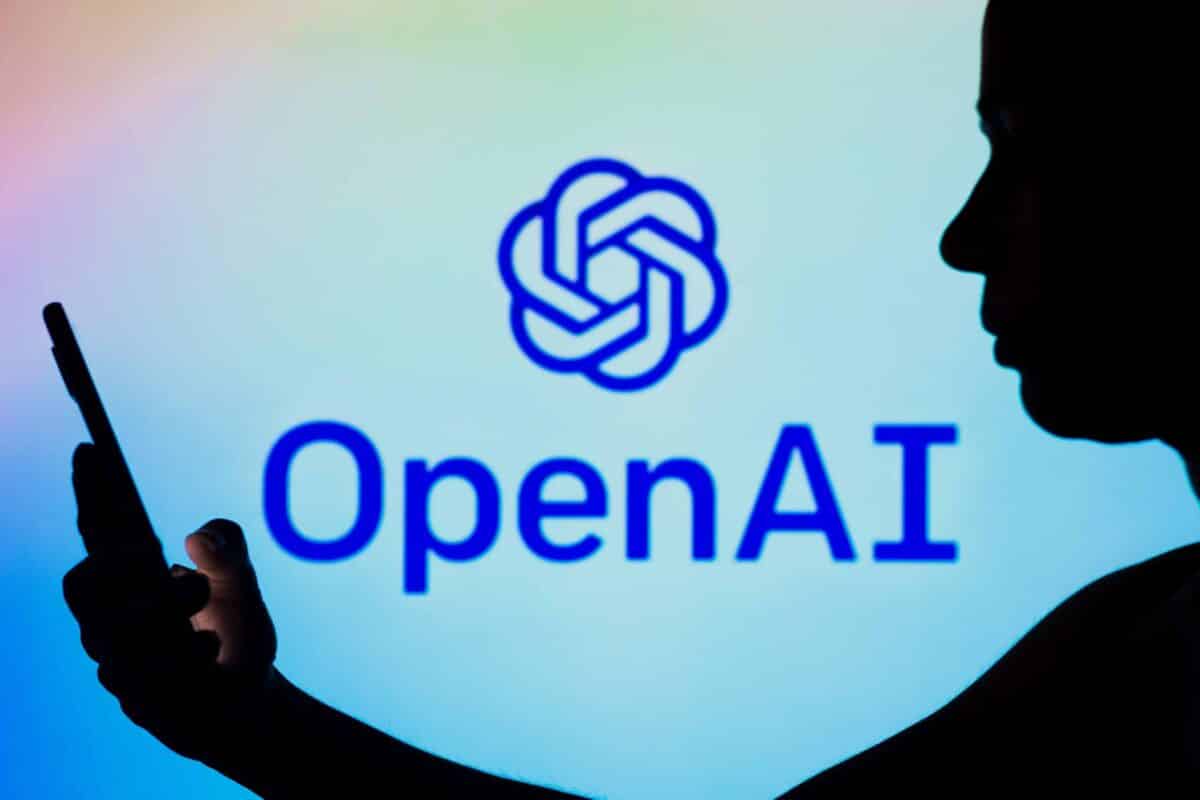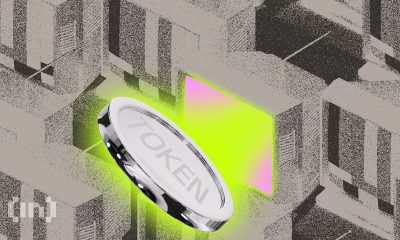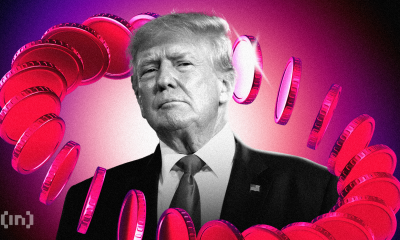Regulation
OpenAI Executive Jan Leike Resigns, Calls for Stronger AGI Safety Measures

Jan Leike, the head of alignment in OpenAI and the leader of ‘Superalignment’ team has left this company due to his worries about its priorities which he thinks are more focused on product development than AI safety.
Leike made a public announcement of his resignation on May 17, through a series of posts on the social media platform X, which was previously known as Twitter. He stated that the OpenAI leadership was wrong in their choice of core priorities and they should place more emphasis on safety and preparedness as AGI development is moving forward.
Jan Leike’s Safety Concerns and Internal Disagreements
Leike, who had been with OpenAI for about three years, pointed out in his posts that the culture and processes around AI safety were being neglected by the development of “shiny products”. He expressed concern over the allocation of resources, saying that his team needed help to get the necessary computing power to carry out important safety research.
Building smarter-than-human machines is an inherently dangerous endeavor.
OpenAI is shouldering an enormous responsibility on behalf of all of humanity.
— Jan Leike (@janleike) May 17, 2024
“The construction of machines that are smarter than humans is a risky task by itself,” Leike quoted, thus indicating the OpenAI’s responsibility for humanity.
His resignation came almost at the same time as Ilya Sutskever’s departure. Sutskever, the co-leader of the ‘Superalignment’ team and OpenAI’s chief scientist, had already announced his resignation a few days earlier. The departure of Sutskever was a noticeable since he co-founded OpenAI and participated in various research projects, including the development of ChatGPT.
Dissolution of the Superalignment Team
In view of the recent resignations, OpenAI has decided to disband the ‘Superalignment’ team and its functions will be merged with other research projects in the company. Bloomberg told that this decision is a result of the internal restructuring which has been going on since the governance crisis in November 2023 when CEO Sam Altman was temporarily removed and President Greg Brockman lost his chairmanship.
The ‘Superalignment’ team, created to deal with the existential risks that were brought by advanced AI systems and was responsible for developing solutions of controlling and steering superintelligent AI. Their work was considered as the most important in making preparations for the next generations of AI models.
Although the team was dissolved, OpenAI has promised that research on long-term AI risks will go on under the direction of John Schulman, who is leading also a team which develops how to fine-tune AI models after training.
OpenAI’s Current Trajectory and Prospects
Leike and Sutskever’s resignations, together with the disbanding of ‘Superalignment’ team, have been followed by a high-level scrutiny on AI safety and governance at OpenAI. This is the result of a long period of contemplation and disagreement, especially after Sam Altman was dismissed and then later rehired.
The departures and restructuring indicate that OpenAI may not be committed to the safety as it continues to develop and release advanced AI models. Lately, OpenAI has introduced a new “multimodal” AI model, GPT-4o, which can interact with humans more naturally and in an almost human-like way. Although this achievement proves OpenAI’s technological skills, it also reveals the ethical issues concerning privacy, emotional manipulation, and cybersecurity risks.
Though there is a lot of commotion, OpenAI still sticks to the main goal which is to create AGI safely and for the good of humanity. In a post on X, Sam Altman, OpenAI’s CEO admitted Leike’s work and stressed the company’s commitment to AI safety.
“I’m very grateful to @janleike for his great contributions to OpenAI’s alignment research and safety culture, and I am really sad that he is leaving. He’s right we have a lot more work to do; we are determined to do it. I will post my longer version in the next couple of days,” Altman wrote.
Read Also: Binance Pushes For SHIB, USTC, AGIX Liquidity and Trading Boost
The presented content may include the personal opinion of the author and is subject to market condition. Do your market research before investing in cryptocurrencies. The author or the publication does not hold any responsibility for your personal financial loss.
Regulation
Japan Set To Classify Cryptocurrencies As Financial Products, Here’s All

Cryptocurrency investors in Japan are bracing for impact following a plan to reclassify digital assets as financial products. While the plan has elicited excitement from cryptocurrency enthusiasts in the Far East, the ambitious plan will have to scale several legislative hurdles.
Japan Targets Reclassification Of Cryptocurrencies As Financial Products
According to a report by Nikkei, Japan’s Financial Services Agency (FSA) is inching toward classifying cryptocurrencies as financial products. Per the report, the FSA intends to achieve the reclassification via an amendment to the Financial Instruments and Exchange Act.
Currently, digital assets in Japan are considered crypto assets conferred with property rights and seen as payment means. Under the FSA’s plans, cryptocurrencies in Japan will be treated as financial products in the same manner as traditional financial products.
The FSA says it will adopt a slow and steady approach toward the reclassification, carrying out “a private expert study group” to test the waters. If everything goes according to plan, the FSA will submit the amended bill to Parliament in early 2026.
The classification of cryptocurrencies as financial products will have far-reaching consequences for the local ecosystem. Experts say treating cryptocurrencies as financial products will bring Japan closer to a crypto ETF launch amid a changing regulatory landscape.
Furthermore, the move may lower current cryptocurrency taxation for local investors since existing capital market rules will apply to the asset class.
A Fresh Bill For Crypto Insider Trading Is Underway
Apart from the reclassification, the FSA disclosed plans for new legislation against insider trading. The move flows treating cryptocurrencies as financial products and will strengthen existing investor protection rules.
“It is a direction to establish a new insider trading regulation that prohibits trading based on unpublished internal information,” said the FSA. “We will develop laws to prevent unfair transactions.”
However, Japan’s cryptocurrency scene is heating up to a boil, driven by local and international players. Last week, stablecoin issuer Circle secured approval from the FSA for USDC with top exchanges set to list the stablecoin.
Japan’s Metaplanet has tapped Eric Trump to join its Strategic Board of Advisors as it continues to load up Bitcoin.
Disclaimer: The presented content may include the personal opinion of the author and is subject to market condition. Do your market research before investing in cryptocurrencies. The author or the publication does not hold any responsibility for your personal financial loss.
Regulation
Kentucky Governor Signs Off On ‘Bitcoin Rights’ Bill, Strengthening Crypto Protections


In what is being dubbed a major development in the crypto regulation space, the Governor of the US state of Kentucky, Andy Beshear, has signed the ‘Bitcoin Rights’ bill into law. The law promises to safeguard protections for Bitcoin (BTC) users.
Bitcoin Rights Bill Comes Into Effect
Crypto regulations continue to evolve under pro-crypto US President Donald Trump’s administration. In the latest development, Kentucky has become the newest state to enshrine protections for digital asset users.
In an X post published on March 24, crypto advocacy group Satoshi Action Fund announced that Governor Beshear had signed the much-anticipated Bitcoin Rights bill into law. The post stated:
The right to self-custody, run a node, and use of digital assets is now protected for millions of Americans without fear of discrimination.
The bill was first introduced to the Kentucky House by Rep. Adam Bowling on February 19. According to the bill’s description, it seeks to safeguard users’ rights to use digital assets and self-custody wallets. Additionally, it aims to prohibit local zoning changes that discriminate against crypto mining operations.
The legislation outlines guidelines for running a digital asset node and excludes digital asset mining from money transmitter license requirements. It also clarifies that crypto mining or staking is not considered an offer or sale of securities.
On February 28, the bill passed Kentucky’s House of Representatives with a unanimous vote of all 91 representatives in favor. It later passed the Kentucky Senate on March 13, receiving backing from all 37 senators.
Kentucky’s proactive stance toward cryptocurrencies isn’t new. Earlier this year, the state became the 16th US state to introduce legislation seeking to create a Bitcoin strategic reserve.
Meanwhile, neighboring state Arizona is also joining the crypto movement. A recent X post by Bitcoin Laws revealed that Arizona’s House Rules Committee has passed two Bitcoin reserve bills — SB1373 and SB1025. These bills will now head to a full floor vote.
Renewed Optimism Under Trump Administration
Following Trump’s victory in the November presidential election, cryptocurrency regulations in the US are evolving rapidly, with many states introducing legislation aimed at strengthening their digital asset ecosystems and attracting crypto businesses.
Positive changes in crypto regulations are encouraging industry businesses to expand. For instance, leading crypto trading platform Coinbase recently announced plans to hire 1,000 employees in the US.
The Trump administration has also witnessed several lawsuits being dropped against major crypto entities, including Kraken, Coinbase, Gemini, and others. At press time, Bitcoin trades at $87,399, down 0.2% in the past 24 hours.

Featured Image from Unsplash.com, chart from TradingView.com

Editorial Process for bitcoinist is centered on delivering thoroughly researched, accurate, and unbiased content. We uphold strict sourcing standards, and each page undergoes diligent review by our team of top technology experts and seasoned editors. This process ensures the integrity, relevance, and value of our content for our readers.
Regulation
US SEC Drops Charges Against Hawk Tuah Girl Hailey Welch

Hawk Tuah girl Hailey Welch, known for her association with the controversial $HAWK token, has been cleared of any wrongdoing after a lengthy investigation by the U.S. Securities and Exchange Commission (SEC). The SEC has decided not to press charges against Welch in connection with the rapid rise and subsequent collapse of the meme-based cryptocurrency.
US SEC Investigation Into Hawk Tuah Girl Concludes Without Charges
The SEC had launched an investigation into the $HAWK token after its dramatic price drop. The token, which was linked to Welch’s viral persona, initially saw a market cap surge to $490 million before crashing by over 90%. Investors who were impacted by the crash filed a lawsuit against those behind the project, alleging that the coin had been promoted and sold without proper registration.
Hawk Tuah girl Hailey Welch, who cooperated fully with the investigation, expressed relief after the SEC’s decision. “For the past few months, I’ve been cooperating with all the authorities and attorneys, and finally, that work is complete,” Welch told TMZ.
Her attorney, James Sallah, confirmed that the SEC had closed the case without any findings against her, adding that there would be no monetary sanctions or restrictions on Welch’s future involvement in cryptocurrency or securities.
This Is A Developing News, Please Check Back For More
Disclaimer: The presented content may include the personal opinion of the author and is subject to market condition. Do your market research before investing in cryptocurrencies. The author or the publication does not hold any responsibility for your personal financial loss.
-

 Regulation21 hours ago
Regulation21 hours agoJapan Set To Classify Cryptocurrencies As Financial Products, Here’s All
-

 Market24 hours ago
Market24 hours ago3 Token Unlocks for April: Parcl, deBridge, Scroll
-

 Market21 hours ago
Market21 hours agoTop 3 Made in USA Coins to Watch This Week
-

 Market20 hours ago
Market20 hours agoSolana (SOL) Price Risks Dip Below $110 as Bears Gain Control






















✓ Share: